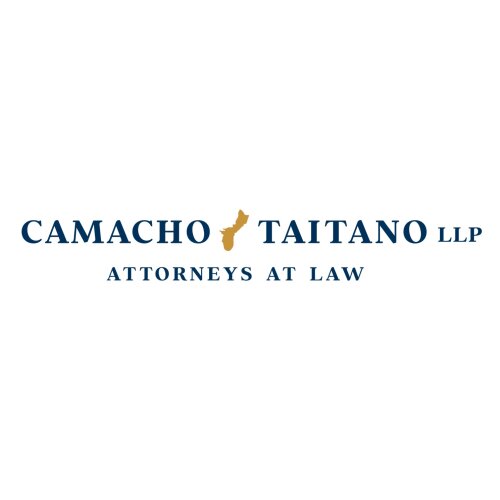Best Education Law Lawyers in Guam
Share your needs with us, get contacted by law firms.
Free. Takes 2 min.
Or refine your search by selecting a city:
List of the best lawyers in Guam
About Education Law in Guam
Education Law in Guam encompasses the statutes, regulations, policies, and case law governing education and the rights of students, parents, and educational institutions. It involves issues such as student rights, special education services, school safety, discrimination, and the administration of public and private education systems. Given Guam's unique cultural and legal environment, the laws are designed to address the island's specific educational needs and operate under both local regulations and federal mandates applicable to U.S. territories.
Why You May Need a Lawyer
Individuals may require legal assistance in Education Law for various reasons, including but not limited to:
- Disputes over special education services or individualized education programs (IEPs).
- Cases involving school suspensions, expulsions, or disciplinary actions.
- Allegations of discrimination based on race, gender, disability, or other protected categories.
- Concerns about school safety, including issues related to bullying and harassment.
- Understanding the rights and responsibilities of homeschool educators and students.
- Legal guidance for students with disabilities or their families regarding accommodation rights.
- Matters related to school funding and resource allocation.
- Issues involving teacher employment, contracts, or disputes with educational institutions.
Local Laws Overview
Guam's education laws are influenced by local statutes enacted by the Guam Legislature as well as federal laws applicable to U.S. territories. Key aspects include:
- Public School System Management: Governed by the Guam Education Board and the Guam Department of Education, with mandates for curriculum, teacher qualifications, and school policies.
- Special Education: Compliance with the Individuals with Disabilities Education Act (IDEA) to ensure that students with disabilities receive appropriate educational opportunities and services.
- Nondiscrimination Policies: Regulations prohibiting discrimination based on race, color, national origin, sex, disability, or religion are actively enforced in educational settings.
- Athletic and Extracurricular Policies: Specific rules regarding participation rights, funding, and accommodation for safe and equal access to school activities.
Frequently Asked Questions
1. What are my rights if my child has special educational needs?
Your child is entitled to a free appropriate public education (FAPE) under the IDEA. You have the right to request evaluations, attend IEP meetings, and contest decisions you believe are not in your child's best interest.
2. How can I address bullying in schools?
You should report any incidents to school administrators immediately. Schools in Guam must have an anti-bullying policy in place. If the response is inadequate, consult with an education lawyer regarding potential legal remedies.
3. Are there specific laws for homeschooling in Guam?
Yes, homeschooling is legal in Guam, but you must comply with certain regulations, including educational activities, record-keeping, and ensuring student progress is assessed regularly.
4. Can a school deny enrollment to my child?
In general, public schools must accept all students residing in their district, barring specific criteria such as age restrictions, until certain educational records are reviewed.
5. What legal actions can be taken in cases of discrimination?
You can file a complaint with the school district, the Office for Civil Rights, or pursue a lawsuit for any discriminatory practices under federal law and local regulations.
6. What are my options if I disagree with a disciplinary action taken by the school?
You have the right to challenge unjust disciplinary actions. First, appeal to the school's administration, and if unresolved, seek legal advice to explore further action.
7. How do I request an evaluation for special education services?
Submit a written request to your child’s school for special education evaluation. The school must respond and conduct assessments within a reasonable timeframe.
8. What is the role of the Guam Education Board?
The Guam Education Board oversees the policies and operations of public schools, ensuring compliance with educational standards and improving quality of education.
9. Can I request changes to my child's IEP?
Yes, as a parent or guardian, you can request an IEP review meeting to discuss and propose changes at any time, especially if your child’s needs are not being adequately met.
10. What should I do if my child's school does not meet safety standards?
Report the issue to school administrators, the Guam Department of Public Health and Social Services, or the Guam Department of Education. Legal action can be considered if problems persist.
Additional Resources
For further assistance or information related to Education Law in Guam, consider the following resources:
- Guam Department of Education
- Office for Civil Rights - U.S. Department of Education
- Guam Legal Services Corporation
- Family Advocacy Programs on Guam
- Local Bar Association for lawyer referrals
Next Steps
If you require legal assistance, your first step is to gather any relevant documentation related to your issue. Contact a qualified Education Law attorney who is experienced in Guam's legal system. You can also reach out to local legal aid services for initial guidance, especially if cost is a concern. Take advantage of initial consultations offered by many attorneys to discuss your situation and outline potential courses of action.
Lawzana helps you find the best lawyers and law firms in Guam through a curated and pre-screened list of qualified legal professionals. Our platform offers rankings and detailed profiles of attorneys and law firms, allowing you to compare based on practice areas, including Education Law, experience, and client feedback.
Each profile includes a description of the firm's areas of practice, client reviews, team members and partners, year of establishment, spoken languages, office locations, contact information, social media presence, and any published articles or resources. Most firms on our platform speak English and are experienced in both local and international legal matters.
Get a quote from top-rated law firms in Guam — quickly, securely, and without unnecessary hassle.
Disclaimer:
The information provided on this page is for general informational purposes only and does not constitute legal advice. While we strive to ensure the accuracy and relevance of the content, legal information may change over time, and interpretations of the law can vary. You should always consult with a qualified legal professional for advice specific to your situation.
We disclaim all liability for actions taken or not taken based on the content of this page. If you believe any information is incorrect or outdated, please contact us, and we will review and update it where appropriate.
Browse education law law firms by city in Guam
Refine your search by selecting a city.










